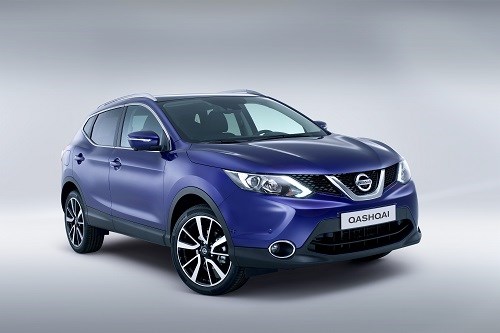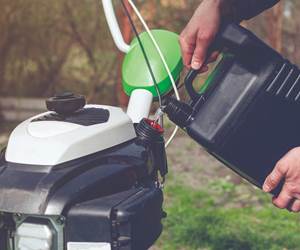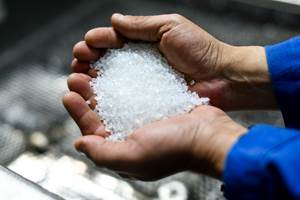Borealis Pushes PP In Automotive Development Projects
New high-fluidity PP grades from Borealis applied to new vehicles from the Renault-Nissan Alliance exemplify the trend of using a focused PP product portfolio on common global OEM platforms.
A new range of PP materials have been developed by Borealis specifically to meet the specifications defined by the Renault-Nissan Alliance product portfolio strategy with the aim to apply them globally on all new cars. The move exemplifies the trend of using a focused PP product portfolio on common global OEM platforms—such as the “Common Module Family” (CMF), the engineering architecture that covers Renault-Nissan Alliance vehicles for the global compact and large car segments--to bring the cost-performance ratio to the next level.
CMF is not a conventional “platform sharing” scheme, according to a spokesman for the Alliance. Rathers, it’s a modular architecture system that dissects the vehicle into five fundamental zones—knows as the “4+1 Big Modules.” These big modules include four basic body units (engine compartment, cockpit, front underbody and rear underbody), plus a fifth unit comprising the vehicle’s electrical and electronic architecture. Designers, engineers and product developers can “mix and match” these big modules flexibly to create an unusually large variety of vehicles—from urban subcompacts to compacts, mid-size sedans, crossovers and SUVs. CMF’s three primary categories are : CMF-A, small fuel-efficient cars; CMF-B, mid-sized cars; and, CMF-C/D, larger vehicles, including many Renault, Dacia, Nissan and Datsun brands.
By 2020, when CMF is fully deployed in plants worldwide, 70% of all of the Alliance’s vehicles with fall within the CMF scope. The Alliance says, CMF means more choices, higher quality and better value for its customers. Moreover, sharing the technical architecture among a wide variety of models enables the Alliance to dramatically simplify engineering and manufacturing processes. The approach is expected to cut engineering costs by up to 40% and purchasing costs by as much as 30%. The savings allow product planners to add high-value items for customers (such as lane departure warning, around-view monitor and automatic parking in the case of the first CMF vehicles now rolling off assembly lines, like the Nissan Roque (USA) and Nissan Qashqai (UK).
In fact, the first and latest vehicle using the CMF-C/D segment modular platform is the Quashqai, for which Borealis supplied two PP specialty materials: EG066AI for door panels and MG160AI for interior trims. Key benefits cited for these high-fluidity PP grades include: easy processing resulting in increased production efficiency; high-scratch resistance; and, excellent surface aesthetics.
Borealis’ global OEM manager Frank Lagoutte says, these materials deliver maximum value and performance and will be used on other vehicles from the CMF platform in the coming months such as the Nissan X-Trail (produced in multiple plants worldwide). He notes that Borealis and Borouge, its joint venture with the Abu Dhabi National Oil Company, are striving to provide weight and cost savings to the Alliance with new generations of materials for dashboard, bumper and other structural parts, such as its Fibremod family of fiber-reinforced PP used in structural applications such as front-end modules, air-intake manifolds and tailgate structures.
Want to find or compare materials data for different resins, grades, or suppliers? Check out Plastic Technology’s Global 
Related Content
Polyethylene Fundamentals – Part 4: Failed HDPE Case Study
Injection molders of small fuel tanks learned the hard way that a very small difference in density — 0.6% — could make a large difference in PE stress-crack resistance.
Read MorePrices for All Volume Resins Head Down at End of 2023
Flat-to-downward trajectory for at least this month.
Read MorePrices for PE, PS, PVC, PET Trending Flat; PP to Drop
Despite price increase nominations going into second quarter, it appeared there was potential for generally flat pricing with the exception of a major downward correction for PP.
Read MoreCommodity Resin Prices Flat to Lower
Major price correction looms for PP, and lower prices are projected for PE, PS, PVC and PET.
Read MoreRead Next
Beyond Prototypes: 8 Ways the Plastics Industry Is Using 3D Printing
Plastics processors are finding applications for 3D printing around the plant and across the supply chain. Here are 8 examples to look for at NPE2024.
Read MoreMaking the Circular Economy a Reality
Driven by brand owner demands and new worldwide legislation, the entire supply chain is working toward the shift to circularity, with some evidence the circular economy has already begun.
Read More
























